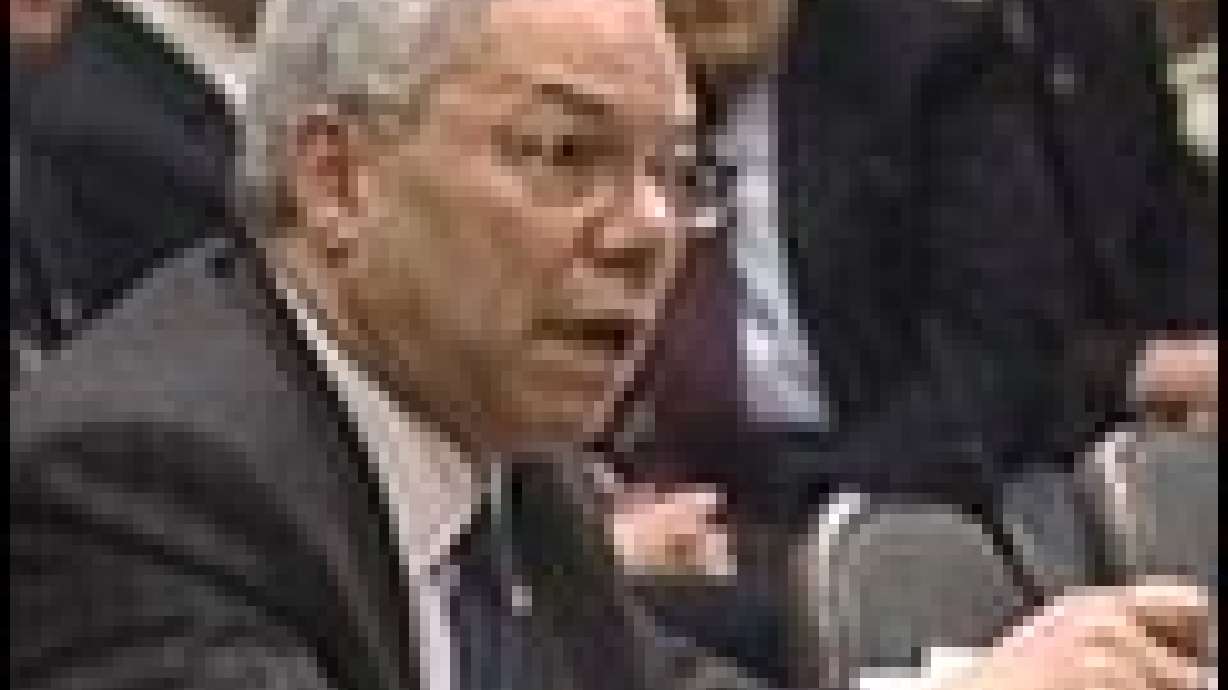Estimated read time: 4-5 minutes
This archived news story is available only for your personal, non-commercial use. Information in the story may be outdated or superseded by additional information. Reading or replaying the story in its archived form does not constitute a republication of the story.
BANGKOK, Thailand (AP) -- Secretary of State Colin Powell said Monday the relief effort for countries devastated by the tsunami was going "exceptionally well" and he sees no immediate need for more U.S. governmental money.
In Washington, President Bush announced a nationwide, private fund-raising effort to provide additional aid for tsunami victims. "Cash donations are most useful," the president said.
Powell is spending several days in Thailand, Indonesia and Sri Lanka, three of the Indian Ocean countries with heavy damage and loss of life. The death toll from last week's disaster is approaching 140,000 and is expected to rise.
"I don't anticipate an increase in money. We haven't spent the money that we've committed so far," Powell told reporters aboard his plane en route to Thailand.
Powell's remarks came shortly before President Bush said in Washington that he had tapped two former U.S. presidents -- his father, George H. W. Bush and his predecessor, Bill Clinton -- to lead a nationwide private fund-raising campaign to help victims of the Asian tsunamis.
Bush said the two men would urge Americans and businesses to contribute to various organizations for relief and reconstruction in areas devastated by the tsunamis.
The United States has faced criticism for being slow to respond to the Dec. 26 disaster. Other countries were quicker to commit large amounts of aid money, and Japan has outpaced the U.S. total of $350 million pledged so far.
With international budgets of about $2 billion in aid in hand, Powell said the main problem now is not money but how to distribute it wisely and plan for long-term reconstruction.
He wants a firsthand look before recommending to President Bush what the United States should do next, Powell said.
"At the moment I don't see a need for any additional financial add to the number, but the president has made it clear we will do what is necessary," Powell said.
The president's brother, Florida Gov. Jeb Bush, is also leading the team of U.S. aid and disaster exports scouting the region with Powell.
"The president wanted both of us to come out here to demonstrate U.S. commitment to the nations of the region and to make an assessment of the situation and see what else we might need to do," Powell said.
In Thailand, Powell was meeting with senior government leaders in Bangkok and then planned a trip to the ruined resort area of Phuket. Phuket is one of the most populated beaches along the Thai coast for American and European tourists.
Fifteen Americans are confirmed dead in Thailand and Sri Lanka, and some 4,000 to 5,000 remain unaccounted for. Powell said that number includes many people who are simply out of touch with family or friends but added, "We can't ignore the very distinct possibility that there are other Americans within this number who have lost their lives."
In Indonesia, Powell planned more meetings and possibly a tour of Banda Aceh or a nearby area on the Island of Sumatra, which took a double hit from the 9.0 earthquake and the wall of water that followed.
He is representing the United States at an international conference in Jakarta, which will include United Nations Secretary-General Kofi Annan and foreign ministers of countries near the disaster and others pledging help.
That conference will be an opportunity to iron out any problems coordinating aid and recovery efforts among the many countries and organizations participating, Powell said.
"But right now I would say things are going exceptionally well when you consider we're only eight days into this ... crisis," he said.
In Washington, Senate Majority Leader Bill Frist of Tennessee, who is a physician, said Monday he too would travel to the region this week to assess "the next wave of threats" from diseases arising from poor sanitation and other health problems in the tsunami's aftermath.
Despite a burgeoning federal deficit and the cost of military operations in Iraq and Afghanistan, Frist said it was critical for the United States to provide relief aid.
"We can afford it, as an American people and as a reflection of the oneness of humanity around the world," Frist told NBC's "Today" show.
Congress returns this week, and Sen. Joseph Lieberman, D-Conn., told ABC's "This Week with George Stephanopoulos" that he expects the House and Senate to "look into a global warning system for tsunamis, including in the Atlantic ... just to make sure we never look back and say, Why didn't we have one?"
With international pledges of $2 billion in aid so far -- including $350 million pledged by the United States -- Powell said the main problem now is not money but how to distribute it wisely and plan for long-term reconstruction.
Addressing criticism the United States was slow to respond and contribute, Powell said it took several days to realize the full extent of the crisis. First reports indicated 10,000 dead, while the true figure was possibly 15 times that, Powell said.
(Copyright 2005 by The Associated Press. All Rights Reserved.)









